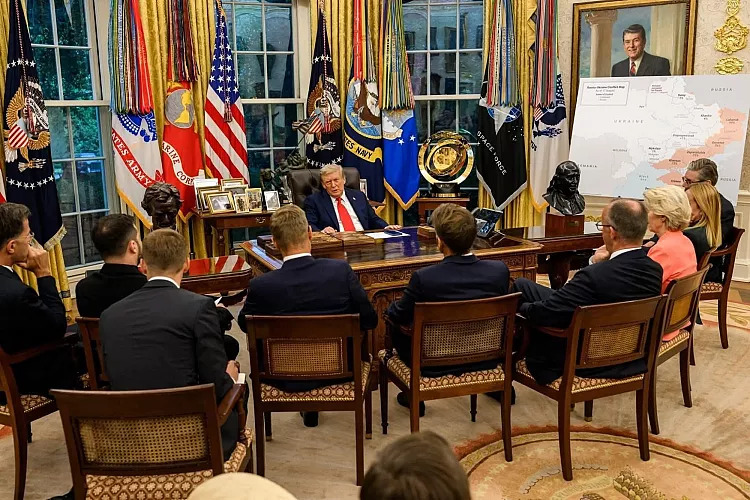
Zhao Long, Senior Fellow and Assistant Director, Institute for Global Governance Studies at SIIS
Sep 12, 2025
Only by transcending the “winner-loser” mindset and exploring a binding solution that is fair, enduring and acceptable to all parties can countries finally rebuild a balanced, effective and sustainable European security framework based on the concept of community.
Sebastian Contin Trillo-Figueroa, Geopolitics Analyst in EU-Asia Relations and AsiaGlobal Fellow, The University of Hong Kong
Feb 28, 2023
As the war in Ukraine marks its one year anniversary, and with the recent announcement of China’s call for a ceasefire and peace talks between Russia and Ukraine, it’s imperative to analyze history and to consider further pathways to peace. Ultimately, China is best positioned to lead the way to the end of the war, and them doing so would be for the betterment of the world.

Zhao Minghao, Professor, Institute of International Studies at Fudan University, and China Forum Expert
Feb 27, 2023
Beijing’s influence on the Ukraine crisis is limited. Neither Washington nor NATO should nurse unrealistic expectations. Relations between China and Russia should not be viewed through the lens of Ukraine. It’s in everyone’s interest to stop the crisis from escalating into a global confrontation.
Xiao Bin, Deputy Secretary-general, Center for Shanghai Cooperation Organization Studies, Chinese Association of Social Sciences
Feb 01, 2023
Russia’s irrational struggle has accelerated a process in which nearby countries are induced to turn against it. Making war is a costly way of fighting. Our country needs to learn how to win without fighting through the use of soft methods.
Xiao Bin, Deputy Secretary-general, Center for Shanghai Cooperation Organization Studies, Chinese Association of Social Sciences
Dec 28, 2022
It is clear that China has little chance of changing Russia’s hard-line position in its war with Ukraine. Nor can it solve the “Russia problem” in the West. It can only act as it sees fit to safeguard the interests of the Chinese people.
Zhou Bo, Senior Fellow, Center for International Security and Strategy, Tsinghua University
Dec 14, 2022
China has not taken sides over the Russia-Ukraine conflict for good reason. It is Russia’s strategic partner and Ukraine’s largest trading partner. At the same time, China and the West are not enemies. We must coexist despite our differences.
Ji Shen, Independent Commentator
Nov 24, 2022
To answer, it is essential to place Russia’s motives in historical context. Since the conflict is essentially between Russia and NATO, the West must be willing to negotiate. Otherwise the struggle will be protracted, with no end in sight.
Joseph S. Nye, Professor, Harvard University
Oct 12, 2022
Russia’s war in Ukraine is the most disruptive conflict that Europe has seen since 1945. While many in the West see a war of choice by Russian President Vladimir Putin, he says that NATO’s 2008 decision in favor of eventual Ukrainian membership brought an existential threat to Russia’s borders, and still others trace the conflict back to the Cold War’s end and the failure of the West to support Russia adequately after the collapse of the Soviet Union. How can we discern the origins of a war that may last for years?
Zhong Yin, Research Professor, Research Institute of Global Chinese and Area Studies, Beijing Language and Culture University
Oct 03, 2022
Recently Chinese State Councilor and Foreign Minister Wang Yi revealed China’s vision during the annual UN General Assembly. His positive words come at a time filled with pessimism around the globe, with the West attempting to damage China’s standing.
Wu Chunsi, Senior Fellow and Director, Institute for International Strategic Studies at SIIS
Jun 16, 2022
The raging Russia-Ukraine conflict is a stark reminder of the urgency of effective management of weapons of mass destruction. The international community must come together to restart the long-stalled international negotiations over arms control and nuclear disarmament by fully utilizing the existing mechanisms and platforms and generating greater consensus and impetus among all stakeholders. A staunch supporter of the international arms control and nuclear disarmament regime, China adheres to its longstanding nuclear policy of maximum restraint and remains committed to the pursuit of a new path leading to a world of enduring peace and stability.
Back to Top

- China-US Focus builds trust and understanding between the U.S. and China through open dialogue among thought leaders.
- Our Offerings
- Topics
- Videos
- Podcasts
- Columnists
- Research Reports
- Focus Digest
- Stay Connected
-
Thanks for signing up!
- Get the latest stories from China-US Focus weekly.